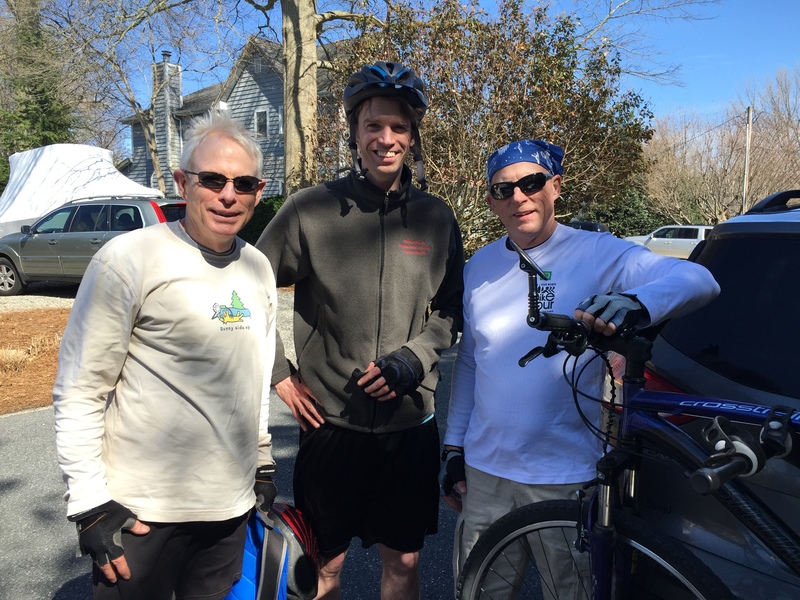Former DNREC chief O’Mara sees nature as unifying
Delaware’s former Natural Resources Secretary Collin O’Mara rolled into town recently with his mountain bike strapped to the back of his vehicle. Now president of the National Wildlife Federation, O’Mara had a slot of time between a Ducks Unlimited event for young people at the state’s Owens Station shooting range near Greenwood on a Saturday morning and a speaking engagement before the Sussex County Democrats that evening in Bridgeville.
We had swapped Christmas greetings back in December and in the course of our exchanges he suggested getting together to ride the new Gordons Pond Trail in the spring.
So that’s what we did.
O’Mara spearheaded construction of the Gordons Pond Trail, which makes a formal connection between the trail system at the northern end of Cape Henlopen State Park and the Gordons Pond parking lot at the southern end of the park. There had long been resistance in the parks division out of concern that such a trail would compromise the wilderness aspect of that area of Cape Henlopen and disrupt wildlife.
The first time O’Mara walked what had already become an informal trail used by hikers and die-hard cyclists - with increasing damage to a set of interior dunes - he saw the new trail as the proverbial no-brainer. Within his departmental ranks, the discussion wasn’t about whether to proceed. O’Mara made it clear that the decision was made. Now it was just a matter of how to proceed, how to make it happen. Within a few years - after careful design - the new trail opened. It has been a home run. More people are getting outside and being active.
They are staying on the trail rather than trampling over dunes and crushing grasses. Hawks and eagles wheel overhead, and foxes, possums, deer, raccoons and other critters have hundreds and hundreds of wild acres to themselves. People are getting to see it all up close and personal without being intrusive.
Near the conclusion of our 17-mile ride of the grand loop, including the Gordons Pond Trail, the Junction and Breakwater Trail, and Lewes and Rehoboth Beach in between, O’Mara summed up the experience in a few short words: “I think this is the No. 1 outdoor recreational experience in Delaware at this time.”
O’Mara sees nature and its wildlife as a binding force for our nation. “I can sit down with Tea Partiers and other folks on the right one day, and left-wing environmentalists on another day and find all talking with great passion about protecting the outdoors and our wildlife resources. I think protecting the amazing natural resources of this nation has been a big part of what defines us as a country, and a big question now is whether we’re going to keep that going.”
In just about a year as head of the powerful National Wildlife Federation, O’Mara has had his hands full. The organization ran an $8 million deficit the year before he took over. Now, he said, the budget is under control. But, it didn’t come without pain.
We all know the adage, “A new broom sweeps clean.” O’Mara went to work quickly with his broom. Many of the federation’s key executive personnel left for other jobs. O’Mara consolidated lots of functions, trimmed the workforce, combined offices, and deflated what appeared to have become a top-heavy and bloated bureaucracy.
It wasn’t a job for which he lacked experience. In the Markell administration and facing steadily shrinking revenues, he and his boss had to do the same kind of cutting and consolidating to keep Delaware on solid financial footing.
Over the course of our ride we talked about the Markell administration’s aggressive approach toward trails and pathways to connect the state’s neighborhoods and towns. “We have to get people outside and healthier. We have to give them safe places to be active. If we don’t, our overall health will continue to decline,” said O’Mara. About one third of Delaware’s budget goes to Medicaid payments. One third to Medicaid, one third to education and one third for the rest. If we don’t get people healthier, the Medicaid pressure on our budget will only worsen.”
That’s why trails like the Gordons Pond and Junction and Breakwater links between Lewes and Rehoboth Beach are so important.


















































